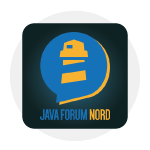
How AI is taught to be agile
In 2020, we received a very interesting request for a “Hands-on-Agility” training for employees of the German Research Center for Artificial Intelligence (DFKI), which electrified us. The DFKI is a public-private partnership (PPP) involving companies, some German states and the German Federal Ministry of Education and Research. The DFKI is Germany’s leading business-oriented research institution in the field of innovative software technologies based on artificial intelligence methods. This presented us with an opportunity to approach the booming topic of AI and to see to what extent the use of AI technologies can bring change in corporate culture in the direction of “more agility.”
Agility as a response to the challenges of AI and Machine Learning.
The topics of AI, Machine Learning and others are sometimes associated with fears, as there is sometimes even talk of a “job killer” in horror scenarios. The optimistic prognosis, on the other hand, is that AI, machine learning, etc. could initially relieve people of routine activities, for example, lead to higher productivity, create free capacity for more strategic tasks, and thus lead to a better, more “human” work environment overall.
However, all affected processes in companies will accelerate strongly and the fast-paced decision-making through the rapid evaluation of relevant data from the multitude of available clues will pose challenges for employees due to the permanent change. The answer to these challenges could be the increased use of Agile methods - along the entire value chain. AI and Agile simply go well together.
Hands-on Agility - Introduction to Agility
In order for AI to work well with Agile ways of working in the future, those developing and those responsible for projects in AI or Machine Learning must of course also have a good understanding of those methods. This is exactly what the DFKI wanted to establish with our training. Part of our task was, at the request of the DFKI, a short but clever overview of “the” agile methods. Here, of course, we had to make a selection, which we did subjectively based on an imagined value chain from the introduction to the topic, idea generation, operational doing and goal-based methods to practical transfer, but from our point of view meaningful for the audience.
We adapted the content of our training to the requirements of the DFKI, so that in the end the agenda looked like this:
- Introduction and derivation of the topic “Agility”.
- Design Thinking
- Design Sprint
- Kanban
- Scrum
- OKR
- Putting into practice
Training for the AI Campus
Since the DFKI is currently working on innovative eLearning content and the requested content fit very well with the overall framework, the desire arose to present these topics in another exciting context: within the framework of the AI Campus. The AI Campus is a pilot project funded by the German Federal Ministry of Education and Research (BMBF) and was released as a beta version in mid-2020. The focus is on the prototypical development of a digital learning platform specialized in the topic of AI. The “Stifterverband”, the German Research Center for Artificial Intelligence (DFKI), the Hasso Plattner Institute (HPI), NEOCOSMO and the mmb Institute have been jointly developing the AI Campus since October 2019. As part of the training course “AI and Leadership”, the very content of the overview of agile methods being developed for the training was to be presented as eLearning using videos. A field report about the remotely conducted Hands-on Agility training and the recording of the video content for the KI Campus will soon be available here.
Conclusion
The high level of attention for the topics of AI and Machine Learning are due to their great potential for fundamental changes in the workplace and for society as a whole. Due to the high importance of agile working, it is therefore very important that AI can understand and support these ways of working in the future. The DFKI has now laid the foundations for this with our training and the AI Campus. We are looking forward to further collaboration and new insights and developments in the field of AI.




